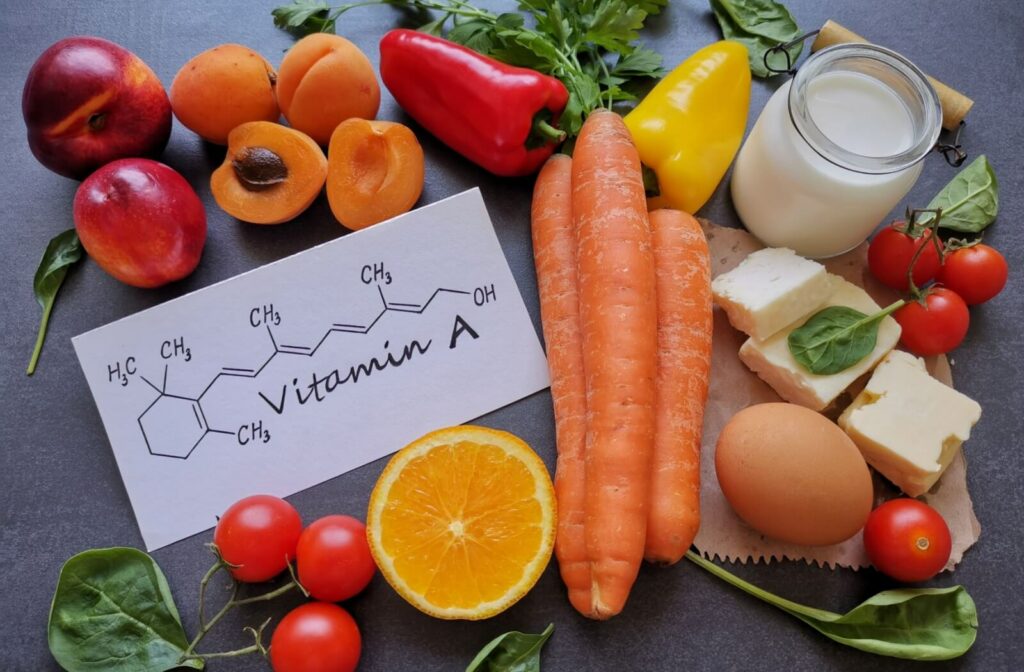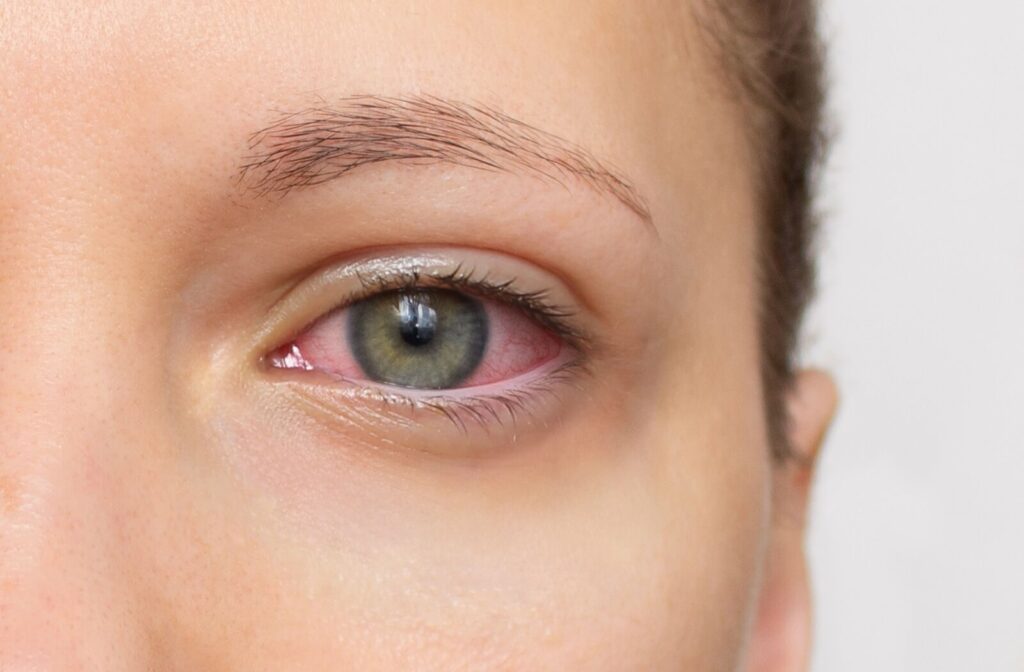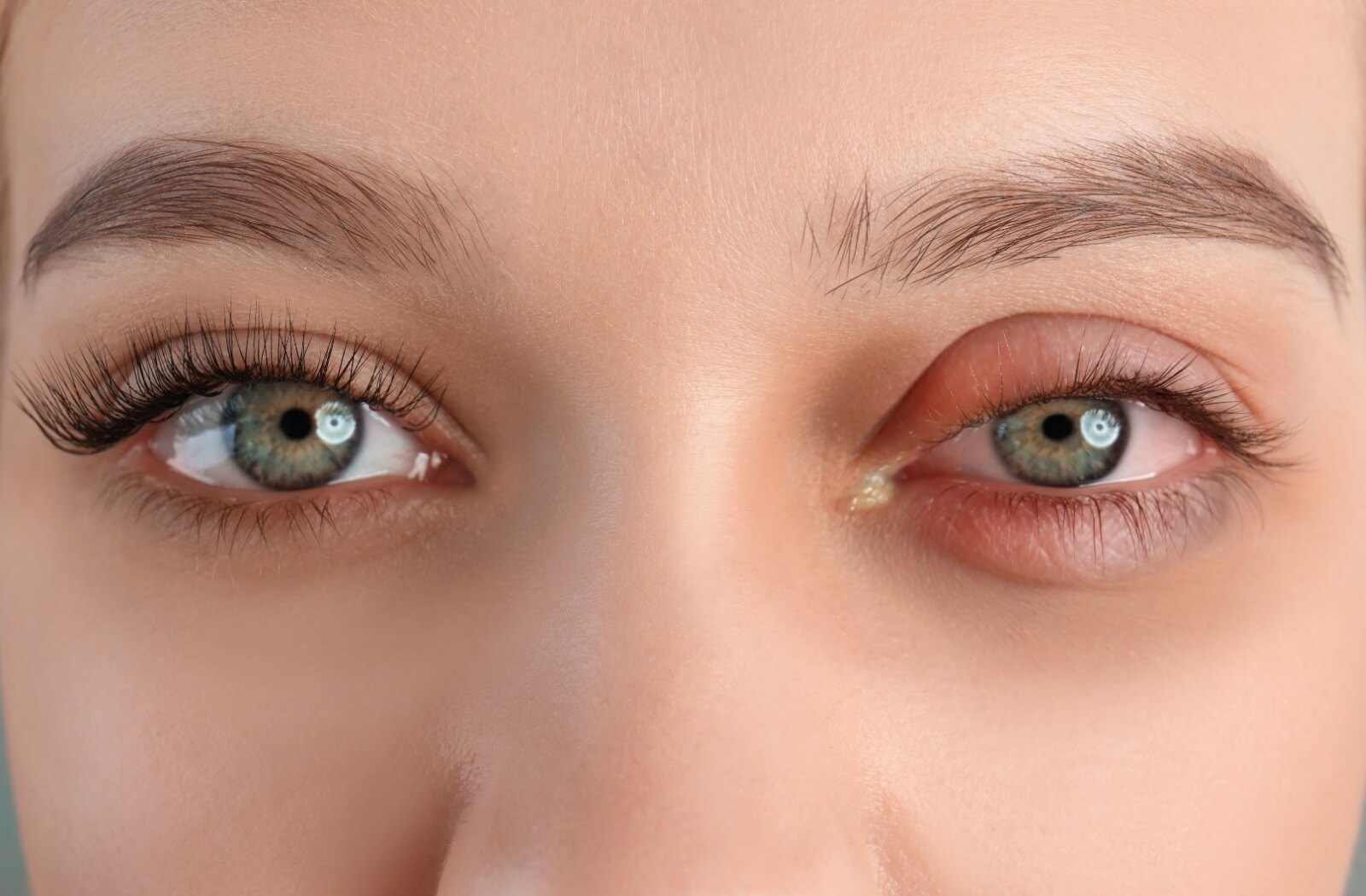Dry eye disease that is not controlled, can turn even the simplest tasks into uncomfortable challenges. Patients who are further along in the disease process often complain of reduced ability to enjoy simple activities of daily life – from being able to drive to reading a book and even seeing clearly. There is a staggering number of people who also suffer depression with dry eye disease. Symptoms can include watering, burning, pain and decreased vision making concentration difficult. Millions of people suffer from dry eye disease and go years without answers or effective treatment.
Although most patients require additional treatment to control their symptoms, I always recommend starting at the basics with some simple changes that can improve symptoms. Supplements and vitamins that are essential to your eye health include:
- Vitamin A
- Vitamin D
- Vitamin B12
- Omega 3 Fatty Acids
A comprehensive dry eye exam can help determine the underlying cause of your dry eye and offer personalized treatment to help manage symptoms.
What Is Dry Eye?
Dry eye Syndrome (DES) otherwise known as Ocular Surface Disease (OSD) can be anywhere from irritating to debilitating depending on the stage of disease. Symptoms that are not treated early on can lead to burning, redness, pain, watering and fluctuating vision.
As you blink, a complex symphony occurs as your eyelids distribute a fresh layer of tear film across the ocular surface. Debris, bacteria and old tears are funneled towards the inner corner of your eye and down the nasolacrimal ducts. Good quality tear film is vital to clear vision and ocular comfort. When too few tears are made or there is excessive evaporation, symptoms of dry eye can develop.
Your tear film has 3 layers: oil, water and mucous which lubricate the ocular surface, providing comfort and the first refracting surface as light enters your eye.
However, when the eye produces insufficient tears or poor-quality tears or tear film, tears evaporate more quickly, leading to dry eyes.
Symptoms of Dry Eye
Besides eye dryness, common symptoms of dry eye can include:
- Redness
- Stinging, burning, or gritty sensation
- Blurred vision
- Sensitivity to light
- Fluctuating vision
- Pain
- Reduced quality of life
- Depression, anxiety and other mood disorders
Causes of Dry Eye
Understanding the underlying cause of your dry eye is crucial, and that’s where a comprehensive dry eye evaluation comes into play. Specific testing ordered by your eye doctor can help find the root cause of inflammation and dry eye so a personalized treatment plan can be created for you.
Some factors that cause dry eye can include:
- Aging
- Certain medications
- Medical conditions
- Environmental factors
- Laser eye surgery
- Prolonged screen time
Through a comprehensive dry eye exam, your eye doctor can determine if these factors contribute to your symptoms or if you have other conditions that could impact your vision.
Importance of Nutrition for Dry Eye
Your overall health and diet play a key role in maintaining eye health and clear comfortable vision. Just like every other part of your body, your eyes need specific vitamins and minerals to function correctly. Nutritional deficiencies and lifestyle can trigger symptoms and even exacerbate mild dry eye symptoms.
Best Vitamins for Dry Eyes

I recommend a blend of vitamins to help you manage your dry eye symptoms, most importantly, Omega 3, Vitamins A, D, and B12. Always consult your doctor before taking vitamin supplements.
Omega-3
Omega-3 fatty acids reduce inflammation and help support meibomian gland function. The delicate oil producing meibomian glands and located within the upper and lower eyelids. As you blink, those oils cover the eye and prevent excessive tear film evaporation which is a leading cause of evaporative dry eye disease.
Vitamin A
Vitamin A is critical for maintaining a healthy immune system, overall growth and development, and normal vision. For dry eyes, vitamin A can help provide a healthy eye surface and support the production of good-quality tears.
Foods rich in vitamin A include:
- Sweet potato
- Carrots
- Red pepper
- Pumpkin
- Squash
Vitamin D
Vitamin D helps your body absorb calcium and maintain healthy bone growth. It can also help reduce eye inflammation, improve tear quality, and lubricate the eye.
Although your body makes vitamin D from the sun, you can also find vitamin D in supplements and some foods, like:
- Egg yolk
- Fatty fish, like salmon or arctic char
- White mushrooms
- Unsweetened lower-fat milk or plant-based beverages
Vitamin B12
Vitamin B12 is one of the body’s vital nutrients that we cannot produce, which means we rely on food and supplements to maintain a healthy intake of vitamin B12. Not only is vitamin B12 essential for proper nerve cell function–including those in your eyes–but it is also necessary for red blood cell formation.
Vitamin B12 can help reduce dry eye symptoms such as burning by repairing the eye’s corneal layer.
Foods high in vitamin B12 include:
- Fish
- Beans
- Peas
- Lentils
- Red meat
- Poultry
- Eggs
Maintain Eye Health with Vitamins
Beyond incorporating Omega-3’s and Vitamins A, D, and B12 to help manage dry eye symptoms, we recommend seeking out vitamins E and C to assist you in your maintenance of healthy vision.
Vitamin E
Vitamin E, with its antioxidant properties, can benefit eye health and reduce the risk of certain eye conditions such as cataracts. Vitamin E can be found in:
- Nuts and seeds such as almonds, sunflower seeds, peanuts
- Safflower oil
- Soybean, corn, and wheat germ oil
- Asparagus
Vitamin C
Vitamin C can help protect against UV light and oxidative damage that can cause age-related cataracts. Vitamin C can be found in:
- Citrus fruits or juices, like oranges and grapefruit
- Strawberries
- Peppers
- Potatoes
- Broccoli
- Brussels sprouts
Supplement Your Vitamins
While getting nutrients from food is ideal, sometimes you can’t consume enough through diet alone. Taking supplements can help bridge the gap between your dietary intake and your nutritional needs.
Speak to your eye doctor about what supplements to take and their dosage so they do not interact with any medications you take.
Dry Eye Treatment
Aside from nutrition, treatment and lifestyle changes can help manage the symptoms associated with dry eye syndrome. During a dry eye evaluation, your doctor will help guide you on the best treatment plan based on your symptoms and stage of the disease process. There are many excellent options that can help restore ocular comfort and prevent further progression of the disease. Finding relief can be overwhelming and frustrating if you are navigating it alone. I recommend first to narrow down the root cause of dryness and then decide on the best treatment for you. Some treatment options include:
- Lubricating Eye Drops: Over-the-counter lubricating eye drops or preservative-free artificial tears can relieve mild dry eye symptoms.
- Stay Hydrated: Drinking plenty of water is crucial for overall well-being, including eye health. Aim for at least 8 to 10 glasses of water daily to keep your eyes and body well-hydrated.
- Take Regular Breaks: If you spend long periods staring at a computer screen, take regular breaks to rest your eyes. Follow the 20-20-20 rule: every 20 minutes, look at something 20 feet away for at least 20 seconds.
- Protect Your Eyes: Use protective eyewear when exposed to wind, dust, or other environmental factors that can exacerbate dry eyes. Sunglasses can also help protect your eyes from the sun’s harmful rays.
- Use a Humidifier: Dry indoor air can worsen dry eyes. A humidifier can add moisture to the air to relieve dry eye symptoms.
- Prescription Eye Drops: Prescription eye drops can help with moderate to severe dry eye symptoms by addressing inflammation and helping with natural tear production
- Intense Pulsed Light (IPL): this FDA approved treatment lowers inflammation associated with dry eye disease, improves ocular rosacea and meiboman gland function. Select wavelengths of light target demodex mites, telangiectasia via photobiomodulation.
- Radiofrequency (RF): monopolor RF technology allows target heat to be applied to the delicate mebominan glands. This treatment melts the oil within the glands providing improved tear film evaporation.
- Serum Tears: autologous serum tears use your own anti inflammatory factors from plasma to lower ocular surface inflammation.
How We Can Help
Dry eye symptoms can range from irritated to disruptive to your everyday life. Early treatment is key to maintain clear, comfortable vision. Incorporating essential vitamins and minerals into your diet through food or supplements can significantly improve your eye health and reduce dryness.
If you suffer from dry eye, take charge of your eye health today and book an appointment with our team at Bella Vision for personalized treatment and nutrition advice.



























